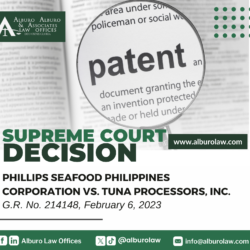The Supreme Court decides: The extent of protection granted to patent holders is limited to the claims of their patent.
The importance of patents as a tool for national development and economic advancement cannot be overemphasized. They ensure the flow of knowledge and information by encouraging inventors to disclose their discoveries to the public. In exchange, inventors are given market exclusivity or the right to exclude others from making, using, offering for sale, selling, or importing a patented product or product obtained from a patented process. However, like any other intellectual property right, the exercise of this right is not without limitations. The extent of protection granted to patent holders is limited to the claims of their patent.











